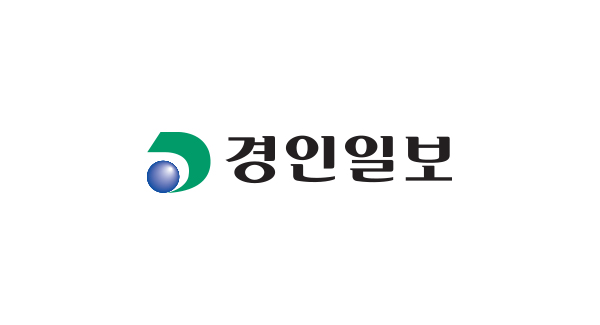
Why Understanding Recent Educational Changes in Korea is Essential for Foreign Families
Hello, dear international readers! If you are living in Korea or are planning to move here, staying updated on educational policies is crucial. New regulations can directly impact your children’s educational opportunities and overall experience in this beautiful country.
Recently, a significant change in the education policy for foreign nationals was announced, allowing ethnic Koreans from abroad to enroll their children in South Korean schools more easily. This change opens numerous doors for families seeking education and a better future here. Let's delve into this important news and see how it affects you!
🌏 What's happening in Korea? (Quick overview)
The South Korean Ministry of Justice announced that starting January 3rd, ethnic Koreans and Chinese nationals with school-age children will now be allowed to apply for the Overseas Korean (F-4) visa status. This policy aims to ensure their right to education in South Korea, primarily targeting children aged 6 to 18 who are currently enrolled in school or unable to attend due to long-term illness or severe disabilities.
💡 Why this matters for foreigners? (Impact analysis)
This policy is particularly significant for foreign nationals, as it demonstrates South Korea's commitment to inclusiveness and support for ethnic Koreans from abroad. By easing the process for children to attend local schools, these families can benefit from a higher quality of education, cultural integration, and a sense of community, enhancing the overall experience of living in Korea.
📌 How to take advantage of this? (Step-by-step guide)
If you qualify for this new policy, here's a simple guide to applying:
- Gather required documents including proof of residency, proof of school enrollment, and medical documentation if applicable.
- Visit your local immigration office – be sure to bring all original documents and copies.
- Submit your application for the F-4 visa status.
- Attend any appointments or interviews if required.
- Stay informed about the status of your application and receive confirmation upon approval.
🇰🇷 Understanding Korea's system (Cultural & bureaucratic insights)
Applying for educational permits and visas in Korea can be challenging due to bureaucratic processes. Given the cultural diversity, understanding local customs, and the working of administrative systems will help you navigate these waters more smoothly. Moreover, fostering relationships with local community centers or organizations can provide invaluable support and resources.
🌟 Tips for foreigners living in Korea
For a smoother experience while living in Korea:
- Join expatriate forums and local community groups to connect with others in similar situations.
- Learn basic Korean phrases to help you navigate daily activities and communicate effectively.
- Attend workshops and training sessions that focus on understanding the Korean educational system.
🔮 What's next? (Future trends & additional insights)
As South Korea continues to embrace multiculturalism, we expect more supportive policies for foreign nationals. Future developments may include expanded educational rights, resources for families, and programs that facilitate smoother transitions for children entering the Korean school system. Stay tuned for updates!
---🇰🇷 Learn Korean from this Article!
Improve your Korean language skills with these key phrases from the article:
🔤 Korean Phrase 1: "재외동포 자격"
🔤 Pronunciation: jaeoe dongpo jagyeok
🔤 English Translation: "Overseas Korean status"
🔤 Usage Tip: Use this phrase when discussing the visa status for ethnic Koreans living abroad.
🔤 Korean Phrase 2: "미성년 자녀"
🔤 Pronunciation: miseongnyeon jan-yeo
🔤 English Translation: "Minor children"
🔤 Usage Tip: This term is useful when talking about children in educational contexts or legal matters.
🔤 Korean Phrase 3: "학교 재학증명서"
🔤 Pronunciation: hakgyo jaehakjeungmyeongseo
🔤 English Translation: "School enrollment certificate"
🔤 Usage Tip: Important for applications related to schooling, such as visa applications.
🙋 Essential FAQs for Foreigners
Can foreigners participate or apply?
Yes! Ethnic Koreans and Chinese nationals with school-age children can apply for the F-4 visa under the new regulation.
Do I need to know Korean for this?
While not mandatory, knowledge of Korean can greatly facilitate the application process and daily life in Korea.
Where can I find official details?
You can check the official Korean government's immigration website or contact your local immigration office for more comprehensive information.
In conclusion, this new policy represents a positive step towards inclusivity in education for foreign nationals in Korea. Make sure to take advantage of these opportunities, and don't hesitate to reach out for support!
📱 Get the BeraKorean App & Stay Updated!
Want to improve your Korean skills and stay informed about life in Korea? Download the BeraKorean app for exclusive content:
- 📱 Android: Download on Google Play
- 🍎 iOS: Download on App Store
📺 Follow us on BeraKorean YouTube for Korean lifestyle & language content!
🌏 Visit berakorean.com for more updates, news, and insights on living in Korea.
---🔗 Read the Original Korean Article
Want to dive deeper? Check out the original article here:
---📢 Tags
#KoreaNews #LifeInKorea #ForeignersInKorea #KoreaOpportunities #KoreaLiving #LearnKorean #KoreanLanguage